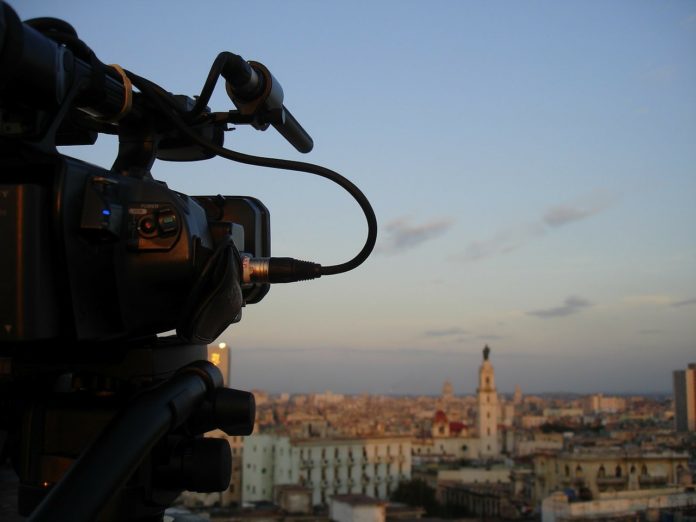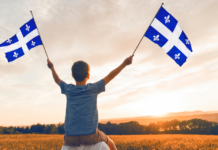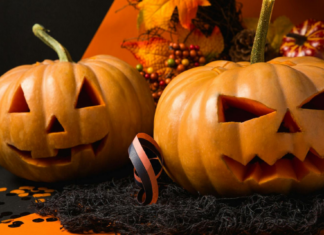Documentaries are a great way to understand more about a certain political, economic, social or cultural event or phenomenon that has happened. There are thousands of very interesting documentaries about nature, political tyrants, environmental disasters, etc. Documentaries help the general public know more about something important and can truly change things in a positive way. We know there are great Anglophone documentaries but if you want to practice your French and watch something a little more intelligent than a normal film. Here are some of the most riveting and compelling Francophone documentaries you can easily watch online.
15 Francophone Documentaries to Watch
Demain by Mélanie Laurent and Cyril Dion
This documentary was directed by French actress Mélanie Laurent (Inglourious Basterds, Now You See Me) and by the French poet, writer and activist Cyril Dion. The two go around the world and identify initiatives from 10 countries in various spheres like agriculture, energy, economy, democracy and education that help create solutions for the challenges the world faces today. The film won the Best Documentary Film at the 2016 César Awards. Instead of using catastrophism like in documentaries like The Eleventh Hour and An Inconvenient Truth, this documentary concentrates on putting forward solutions for the future of our planet.
Bye by Alexandre Taillefer Jean-Philippe Dion and Frédéric Nassif
Alexandre Taillefer is a prominent Quebec entrepreneur and businessman who has had a lot of success in his many business endeavours. A truly tragic event happened in 2015 when his 14-year-old son committed suicide just before Christmas. Instead of disappearing from the public eye, Taillefer used his resources and recognition to create a documentary about the suicide of his cyber-dependent son. The goal of making this documentary was to find solutions to prevent this terrible thing from happening to other families. Cyber dependence is a real problem and mental health issues have to be addressed.
La Vida Loca by Christian Poveda
This documentary was directed by the Franco-Hispanic photojournalist Christian Poveda who was tragically shot dead after releasing this documentary on the very violent and dangerous street gang from El Salvador. His documentary followed the rites and passages, funerals, and other activities of the street gang called 18th Street. After the El Salvador civil war ended, many El Salvadorans gang members living in California were deported and had to go back home. The lack of jobs and opportunities meant the gangs were intensified. Poveda followed various gang members to show the tragic and violent lives they lead.
Océans by Jacques Perrin
This Disney documentary by French actor and director Jacques Perrin will take you through the earth’s five oceans and explore the marine species that live in these very different waters. Of course, our oceans are getting more polluted every day by horrible human activities. Since it is produced by Disney, it is targeted to a younger audience but anyone can enjoy the beauty of the oceans and how important it is to keep them clean. The documentary was filmed in 50 different places all over the world and took 4 years to make.
La Vie moderne by Raymond Depardon
La Vie moderne is a documentary that depicts the life of people who live in the mountains. Raymond Depardon followed these villagers for 10 years so the viewer can really get to know the various villagers and really understand how their day-to-day life works. They explain how these people are pretty secluded from the outside world (they live in the hills of Cévennes) and really need to be passionate about agriculture to be able to work. The two main people filmed in the documentary are the octogenarian brothers and their nephew and his wife.
Solutions locales pour un désordre global by Coline Serreau
This is another documentary on the fate of our planet. This environmental documentary is similar to Demain since the point of the documentary is to talk about the solutions that exist to help save the planet instead of using scare tactics like other documentaries have done. Coline Serreau goes all around the world and speaks to people from different cultures and countries that found their own solutions against the environmental disaster. This is a good documentary that shows how people aren’t alone: there are people all over the world that want to save the planet and that’s what should unite us as humans.
Ma fille n’est pas à vendre by Anaïs Barbeau-Lavalette
This French Canadian documentary was made after many young girls ran away from a youth centre in Laval to prostitute themselves with the help of pimps they met online. The woman who created the documentary wanted to understand why these young girls, who weren’t necessarily from “bad families” were running away to prostitute themselves. Young girls get taken advantage of and are recruited through social media. She follows four mothers whose daughters were taken advantage of by street gangs, drugs, etc.
Sur le chemin de l’école by Pascal Plisson
When we think of going to elementary school, we think of walking to school with our mom and dad, taking the bus with friends or carpooling with the neighbourhood kids. For these four children from the four corners of the world, they have to go through much more in order to get to class. Pascal Plisson followed Zahira from Morocco, Jackson from Kenya, Carlos from Argentina and Samuel from India have more than stop signs and bike paths to follow. In order for these kids to get a good education and thus, get well-paying jobs and a proper learning experience, Jackson has to cross the savanna filled with dangerous animals for 15 km, Zahira has to go through the Atlas mountains, Samuel, who’s in a wheelchair, has to cross 4 km of sandy paths, rivers, and palm groves with the help of his two brothers and Carlos has to go through the steep Patagonian landscape 18 km away from his house to go reach his school. This documentary will truly inspire you and understand that these kids do it for a better future.
Les nouveaux chiens de garde by Gilles Balbastre
This French documentary is a free adaptation of the essay by Serge Halimi, a great French writer and journalist. The documentary explores the close collusion between French journalists and French politicians. Even though journalists express how independent they are from people of power like politicians. Except, many newspapers and other news outlets are owned by huge groups that finance politicians during campaigns and elections. This documentary shows that journalistic values like independence and objectivity are now lost which means news and information given to the large public is falsified. Even though this documentary came out in 2012, it still feels very current during this fake news era.
Human by Yann Arthus-Bertrand
What does it mean to be human? Yann Arthus-Bertrand talks to people from all over the world to make us understand what it means to be human. The documentary explores stories of love and happiness but also stories of hatred and violence since humans can’t seem to get along even though we’ve been living together for thousands of years. Even though every single human is different, there are some universal feelings that unite us no matter what. The French environmentalist Yann Arthus-Bertrand and his team took three years to make this documentary and they interviewed more than 2000 people in 60 countries all over the world.
Beauté fatale by Léa Clermont-Dion
This documentary explores our obsession with beauty. Léa Clermont-Dion is a Québec feminist, author and body image advocate who struggled with anorexia and body issues when she was younger. Her two-part documentary depicts our obsession with staying young and being beautiful. She interviews numerous Québec public figures about what they think about staying beautiful for a longer amount of time.
Shoah by Claude Lanzmann
This difficult documentary is a 566 minute (over 9 hours) film about the Holocaust. The director, Claude Lanzmann, interviews survivors, witnesses and perpetrators of this atrocious moment in history. The documentary is divided into three parts: Survivors, witnesses and perpetrators. The documentary travels to the various German extermination camps across Poland. This is a critically-acclaimed documentary that won numerous awards. The difficult stories you hear throughout this documentary are heart-wrenching but are important to hear because this was such a disgusting and low point in human history. From resilient and courageous Jews to hateful and fearful Germans, this is a must-see.
La Domination masculine by Patric Jean
This documentary was inspired by the 1998 sociological essay by Pierre Bourdieu which expressed the social relations between men and women. This 2009 documentary shows that there are still old fashioned values that make men more powerful than women. Do women still really want a “dominant” man? Do women still “belong” in the kitchen? These kinds of questions are explored and the documentary tries to show us that there are many other things we need to accomplish for women to be truly equal to men. The documentary goes between Belgium, France and Quebec and shows how children’s toys, the automobile industry, and statistics show that men are still dominating.
La Cour de Babel by Julie Bertuccelli
La Cour de Babel is a 2013 documentary that depicts how immigrants from the four corners of the world (some students come from Tunisia, Mali, the Ivory Coast, etc.) come to this Parisian school to learn how to speak French. The collège de la Grange aux Belles is a school that teaches these young kids perfect French so they can then go to a normal school and be fully integrated into society. The documentary follows these students (11 to 15 years old) for a whole school year.
T’es où, Youssef? by Gabriel Allard-Gagnon
This French-Canadian documentary explores why young men and women join the Islamic State to become terrorists. The documentary revolves around a young journalist and columnist named Raed Hammoud, who wants to understand why his friend from school left to join ISIS. Hammoud explains that his friend was not religious and was a nice and respectful person, which adds to his mysterious conversion. Hammoud also explores the phenomenon of radicalization that has swept over young people.
Would you recommend other francophone documentaries?











